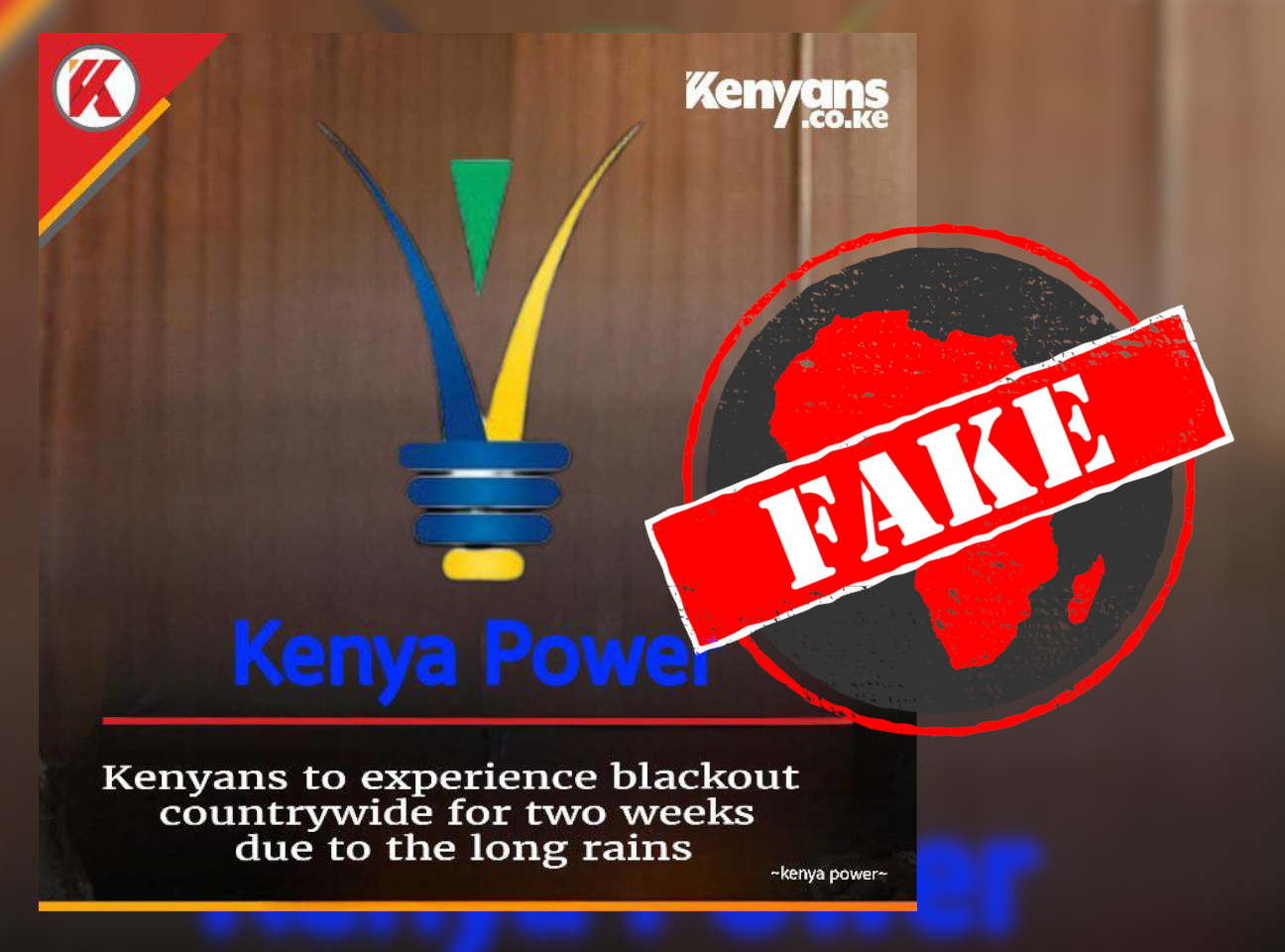IN SHORT: A two-week power blackout would be enough to have many Kenyans breaking out in a sweat. But the warning is on a fake social media card, and not by the news website Kenyans.co.ke or the state power company.
“Kenyans to experience blackout countrywide for two weeks due to the long rains,” reads what appears to be a graphic by the news site Kenyans.co.ke.
The warning is attributed to Kenya Power (KPLC), the country’s state-owned electricity utility.
The graphic is similar to the news cards Kenyans.co.ke regularly posts on Facebook and Instagram.
On 2 November 2022, Kenya Power announced power outages in parts of Nairobi, Mount Kenya and the coast, due to a system disturbance.
The utility later restored supply to most of the affected areas.
This graphic has also been published here and here. But is it legitimate?

Ignore fake graphic
We could not find any new announcement of a two-week blackout on any of Kenya Power’s Twitter and Facebook pages.
We checked Kenyans.co.ke for the graphic but did not find it.
But we did find a legitimate graphic posted on 2 November. It reads: “KPLC States Nationwide Blackout is the Result of a Technical Fault, Working to Restore Power.”
Above the text is a photo of technicians working on an electrical transformer.
Kenyans.co.ke told Africa Check the graphic of a supposed two-week blackout was not theirs.
“The graphic is fake as you can see from the font and the subtext on the bottom right part “kenya power”, which doesn't appear in authentic graphics,” Brian Muuo, the head of digital strategy at Kenyans.co.ke, told us.
Republish our content for free
For publishers: what to do if your post is rated false
A fact-checker has rated your Facebook or Instagram post as “false”, “altered”, “partly false” or “missing context”. This could have serious consequences. What do you do?
Click on our guide for the steps you should follow.
Publishers guideAfrica Check teams up with Facebook
Africa Check is a partner in Meta's third-party fact-checking programme to help stop the spread of false information on social media.
The content we rate as “false” will be downgraded on Facebook and Instagram. This means fewer people will see it.
You can also help identify false information on Facebook. This guide explains how.


Add new comment